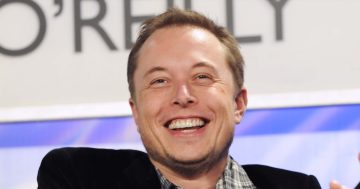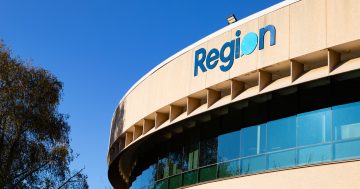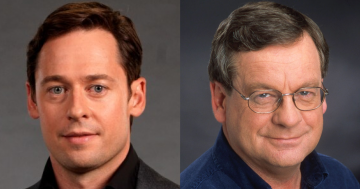
With an increasing reliance on social media for news, it’s harder to tell the difference between fact and fake. Photo: File.
Once upon a time, the media’s role was to keep the bastards honest.
It was our job to hold elected officials accountable, probe claims of corruption, and provide a record of fact on everyday activities. The media, be it newspapers, radio or television, was meant to be trusted, and there were serious laws put in place to ensure no one strayed from the facts.
Of course, it hasn’t been like that, probably forever.
Media, except in very rare cases, will always reflect the views and whims of their paymasters. Selective reporting, loose treatment of the facts, and in some cases, blatant fabrications, contribute to a muddying of the waters.
The ABC has sent out a directive to its journalists and presenters directing them how to respond to claims the Uluru Statement from the Heart is 26 pages long. If we are to believe what we read and hear in some sections of the media, this is an area of dispute.
But the authors of the report themselves say the statement is only one page long. There are additional pages, but they are only background notes and minutes from previous meetings. It matters not to the No campaign, which is using the 26-page claim as a major reason why people should vote no to the Voice to Parliament.
The upshot is that trust is further eroded in the media. People are increasingly turning to social media as their source of ‘news’ and information. This is not going to end well. Social media is a putrid swirling cesspit of hate and fabrications and should not be relied upon to provide any guidance in any debate of substance.
Of course, distrust of the media works well for people in power and those who, in a normal world, would have something to fear from a rigorous, well-respected third estate.
Governments of all persuasion are quite happy to hide their decision-making processes from the public, knowing full well that complaints from the media are not likely to stir up a groundswell of support from the punters.
In recent weeks, I’ve written for Region about the Albanese Government’s refusal to release information explaining its decision to block Qatar Airlines from accessing additional flights into Australia and the Andrews Government’s refusal to release the costings it relied upon in deciding to cancel the Commonwealth Games.
Closer to home, the ACT Government still has questions to answer over the full reasoning behind the Calvary takeover, the next stage of light rail, and the CIT scandal.
In all of the above cases, the various governments need to be reminded that it’s not their money being used or wasted. And it is the right, in fact, the responsibility, of the media to demand answers on behalf of Australian taxpayers.
But such is the low standing of media outlets in the eyes of many Australians that there is barely a whimper of support for those who still believe in frank and fearless reporting.
We don’t have decent whistleblower laws, and the media watchdogs have been neutered. How can this be good for us? Of course, the media has to earn back the trust of its readers, viewers and listeners. I’m just not sure in these days of the internet and ‘fake news’ how that is going to happen.




















